Abstract: Responsible Business Conduct may be further integrated into trade and investment rules.
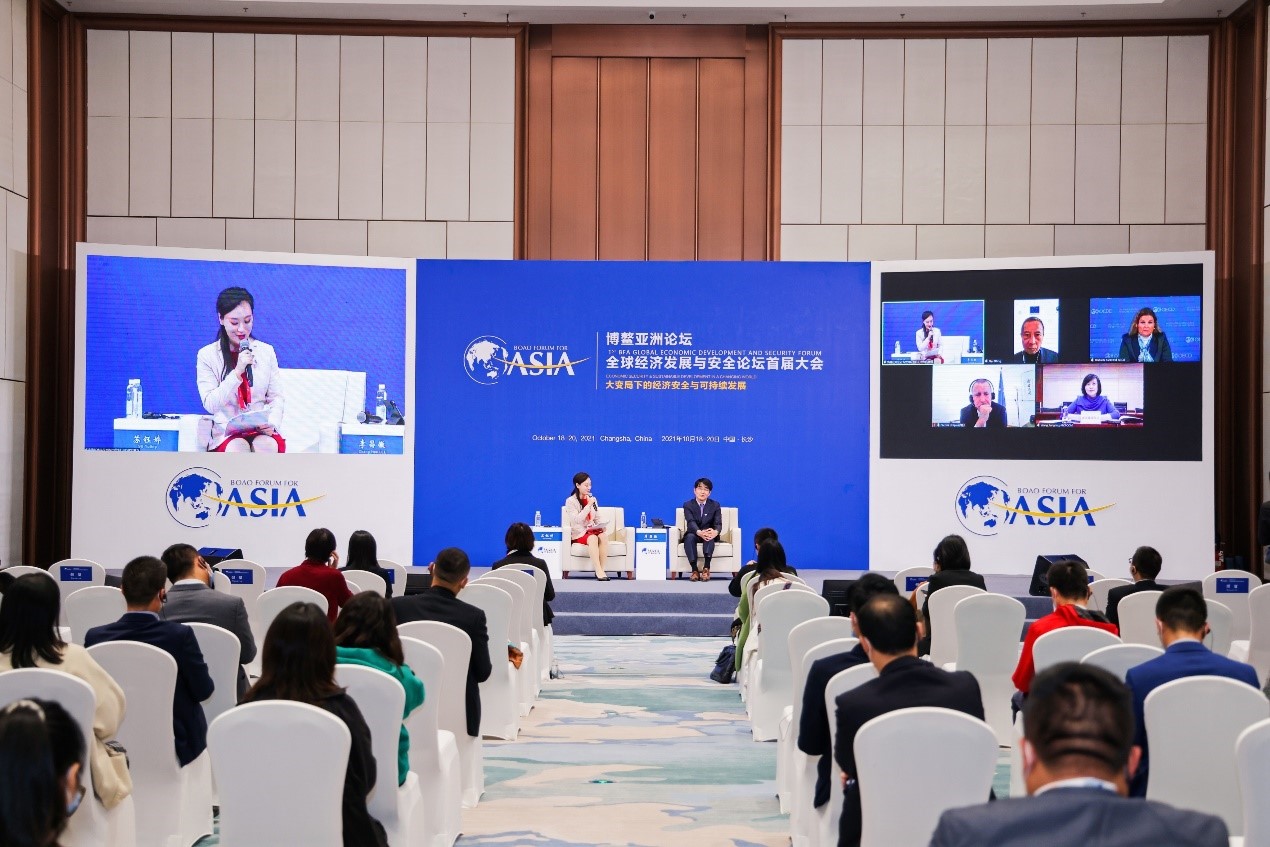
Businesses, as the engine of the economy, are playing an increasingly significant role in important global agendas. Meanwhile, expectations for their positive contributions continue to rise. The Covid-19 pandemic that raged across the world has accelerated structural changes to the business environment in the global supply chains, slowed down economic integration, led to trade restrictions, and taken a toll on investment growth. These problems put pressure on companies who contribute to the sustainable development of the economy, society, and the environment and also make them more aware of the significance of developing more resilient and sustainable long-term strategy.
Responsible business conduct (RBC) offers a path to resilient and sustainable recovery and meet the expectation that all businesses contribute to sustainable development while avoiding and addressing adverse impacts of business operations on people, the environment and society, including throughout the entire supply chain and all business relationships.
At the subforum of RBC for a Sustainable and Resilient Recovery under the first Global Economic Development and Security Forum of the Boao Forum for Asia (BFA) held on October 20, guests from the Organisation for Economic Cooperation and Development (OECD), the International Labour Organization (ILO), the Ministry of Commerce of the People's Republic of China, the Ministry of Industry and Information Technology of the People's Republic of China, and the French telecom company Orange Group had constructive discussions around different topics, including the implications of "sustainability" and "resilience" for global supply chains; what is RBC and why is it important in today's context; RBC related issues and practices in China, Asia and further.
RBC – A highly valued general rule of the international community
In his opening remarks at this forum, Nicolas Chapuis, Head of the EU delegation to China shared that global supply chains are interconnected, and the pandemic has not only caused instability to the supply chains, but also demonstrated the connection between sustainability and resilience. Therefore, it is necessary for all businesses to embrace and practice responsible business conduct. He said that the EU attaches great significance to sustainability and corporate responsibility and has been vigorously supporting the formulation and implementation of international instruments and guidelines on RBC. In the EU, all businesses are expected to fulfil their responsibilities in contributing to a more resilient and sustainable economy.
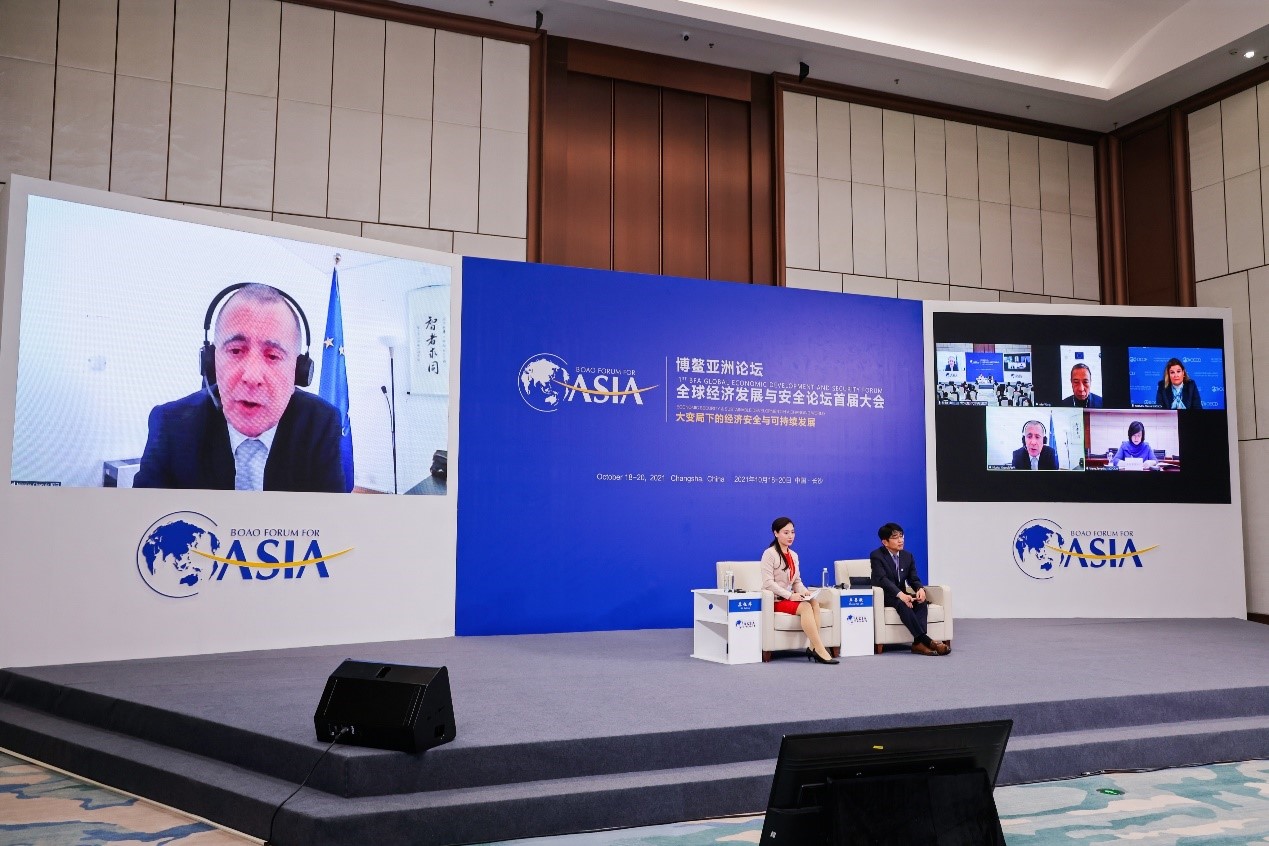
Opening remarks by Nicolas Chapuis, Head of the EU delegation to China
OECD, as an organization aimed at pushing for policies conducive to the world economy and people's livelihoods, calls for joint efforts to tackle economic, social, environmental and government governance challenges, and seize opportunities for multilateral cooperation and globalization. For this organization, the promotion of RBC is a strong drive for its work. In practice, the OECD has issued a series of key international instruments to guide businesses to implement RBC, including the OECD Guidelines for Multinational Enterprises, and a series of practical guidelines, to help businesses enhance due diligence in their operations, supply chain management, and business relations.
RBC is an effective strategy in promoting international trade and investment. It helps rebalance the global economic value chain, improve the global business environment and ensure competitiveness and level playing field, thus creating greater benefits for consumers, workers, and our earth. Mathilde Mesnard, Acting Director of the Directorate for Financial and Enterprise Affairs of the OECD, pointed out in the panel discussion that international standards on RBC should cover all aspects of business responsibilities, including disclosure, environment, anti-corruption, science and technology, competition, taxation, consumer interests, industrial relations, human rights, and so on. These guidelines are in line with the UN's Guiding Principles on Businesses and Human Rights and international labour standards, and are reflected in the policy and legislation of many countries and markets. She said that RBC and sustainable development have been prioritised in Asia; meanwhile, the EU is reviewing its trade strategy and considering passing a legislation to make due diligence mandatory for companies.
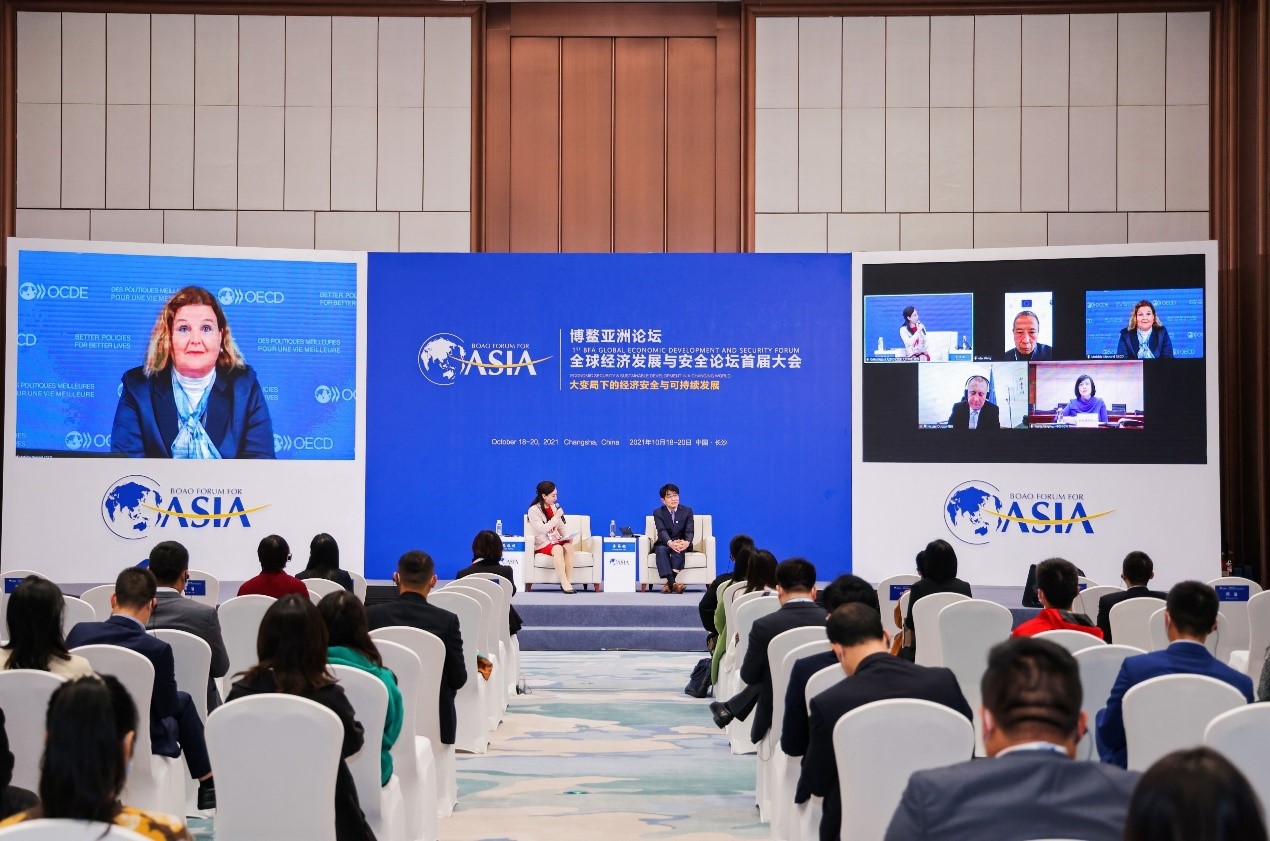
An online speech of Mathilde Mesnard, Acting Director of the Directorate for Financial and Enterprise Affairs of the OECD
Enhancing the resilience of global supply chains through RBC
Mr. Chang-Hee LEE, Director of the ILO Country Office for China and Mongolia, pointed out the importance of vigorously promoting RBC to labor rights during the pandemic. According to him, COVID 19 is taking a serious toll in terms of economic growth and jobs across the world, and due to the lack of global coordination, the negative impact has not been mitigated well. Negative impacts of COVID 19 on jobs and conditions of employment are believed to be twice greater than the impact of the financial crisis in 2008; in 2020, there was a loss of 255 million full-time equivalent working hours that is 8.8% decline in global working hours, compared to 2019. In addition, due to the tremendous pressure, uncertainties and new risks brought by trade tensions and unilateralism to enterprises in global supply chains, there are widespread concerns among ordinary working people about jobs, conditions of work and more broadly future of work, which highlights the importance of global supply chain resilience. The best way of handling the challenge is to voluntarily comply with the principles under the ILO Declaration on Fundamental Principles and Rights at Work throughout global supply chains.

Mr. Chang-Hee LEE, Director of the ILO Country Office for China and Mongolia, speaks at the forum.
It is in the interest of all countries to maintain the globalization of supply chains. In view of this, China is always committed to integrating itself deeper into global supply chains. While actively contributing to the global economy and globalization, China also hopes to enhance the resilience of Chinese companies and promote the sustainable development of global supply chains by enhancing RBC. Wang Jiangning, Inspector at level II, Department of International Trade and Economic Affairs, Ministry of Commerce (MOFCOM), said that China has been promoting the implementation of free trade upgrade plans, and strives to support enterprises in making good use of high-quality free trade agreements to enhance RBC. Chinese enterprises can benefit from these efforts to develop business with partners that have signed free trade agreements, attract more investment, and help promote more efficient and healthy supply chains in the region and across the globe.
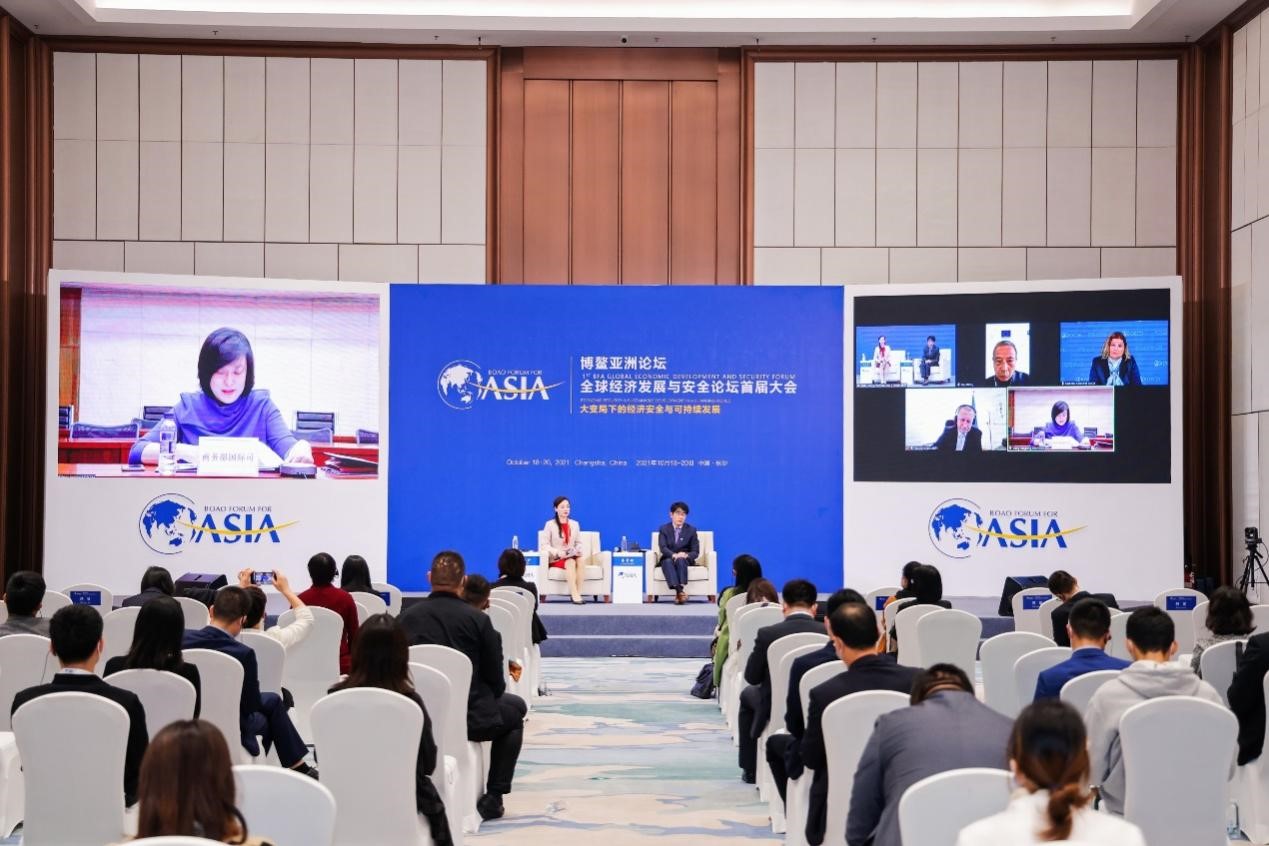
Wang Jiangning, Inspector at level II of the Ministry of Commerce, speaks during the online discussion.
The development of RBC requires the joint efforts of governments and enterprises
Corporate social responsibility (CSR) has become a global consensus, which attracts the attention of governments and international organizations. By actively promoting CSR and RBC, the Chinese government has achieved many results, and Chinese companies are paying more attention to CSR now.
Regarding how the government promotes CSR and RBC, Wang Peng, Deputy Director of the Department of Industrial Policy and Regulation of the Ministry of Industry and Information Technology (MIIT), shared three insights: first, keep improving the standard systems; second, continuously optimizing public services and the environment for CSR; third, continued relevant research programs and international exchanges.
Wang Peng proposed that the following would be the directions for further promoting CSR development: continuing to enhance communication with international organizations such as the OECD on RBC; strengthening international cooperation in the formulation and application of RBC standards; promoting the integration and mutual acceptance of related standards; further strengthening research on responsible manufacturing, procurement, and investment, as well as on data governance, ethical issues in artificial intelligence, personal privacy protection, etc.
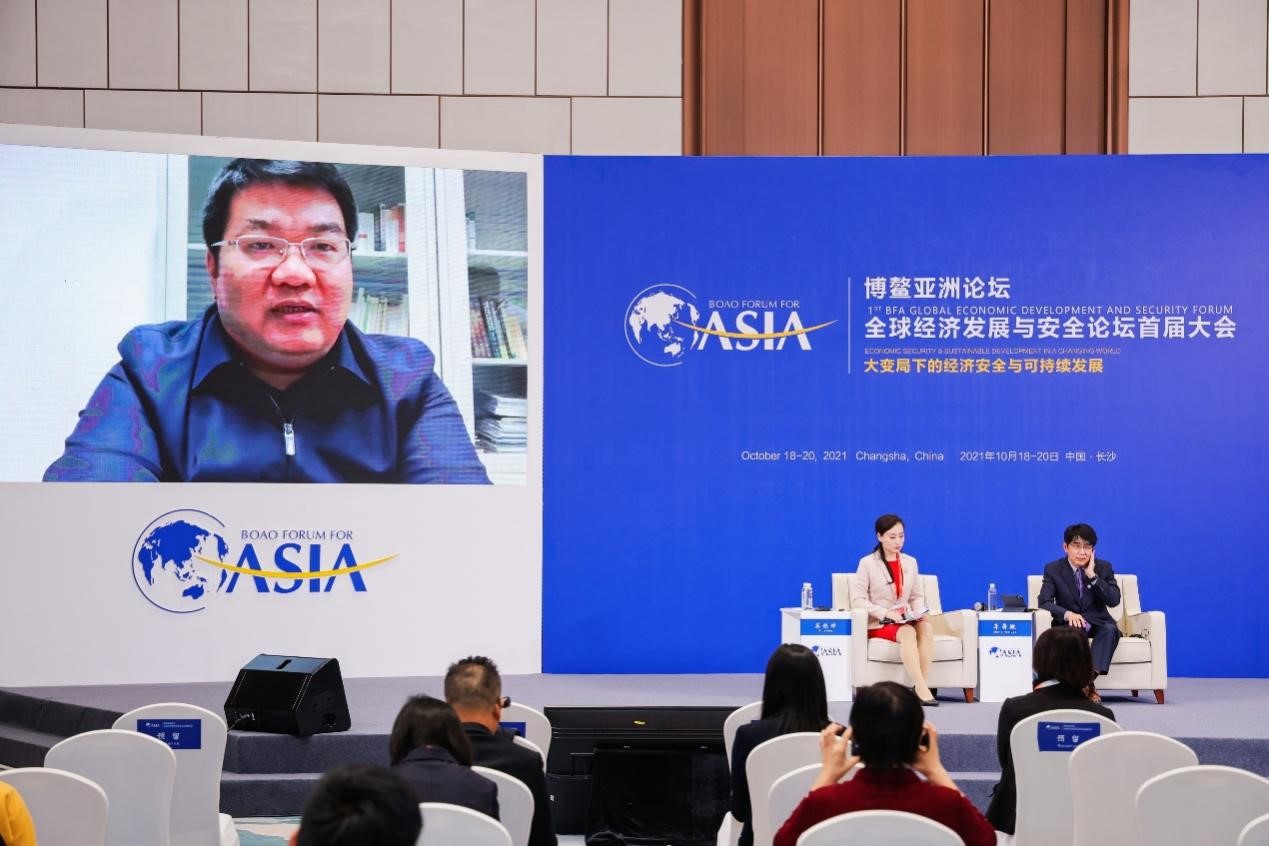
Wang Peng, Deputy Director of the Department of Industrial Policy and Regulation of MIIT, speaks during the online discussion.
Promoting RBC is not only the responsibility of international organizations and governments, but also the responsibility of every business. RBC can boost the resilience of enterprises in the course of crises or uncertainties, thereby benefiting their sustainable development. In this regard, Mathilde Mesnard cited a survey report on the business performance of 1,600 listed Chinese companies from January to June 2020. The report shows that companies with better RBC before the outbreak of the pandemic have been recovering faster, and better in their business performance since the pandemic started.
Alex Wang, Director for Supplier Management & Innovation and CEO, Orange Sourcing Consulting, Orange Group, mentioned that Orange has established a responsible business action alliance composed of 17 members, aiming to form a good, transparent and resilient supply chain. In terms of supply chain due diligence, Orange has covered standards on circular economy, human rights, eco-labeling, and minimum waste in practice, and implemented more stringent management of mineral products used in raw materials.
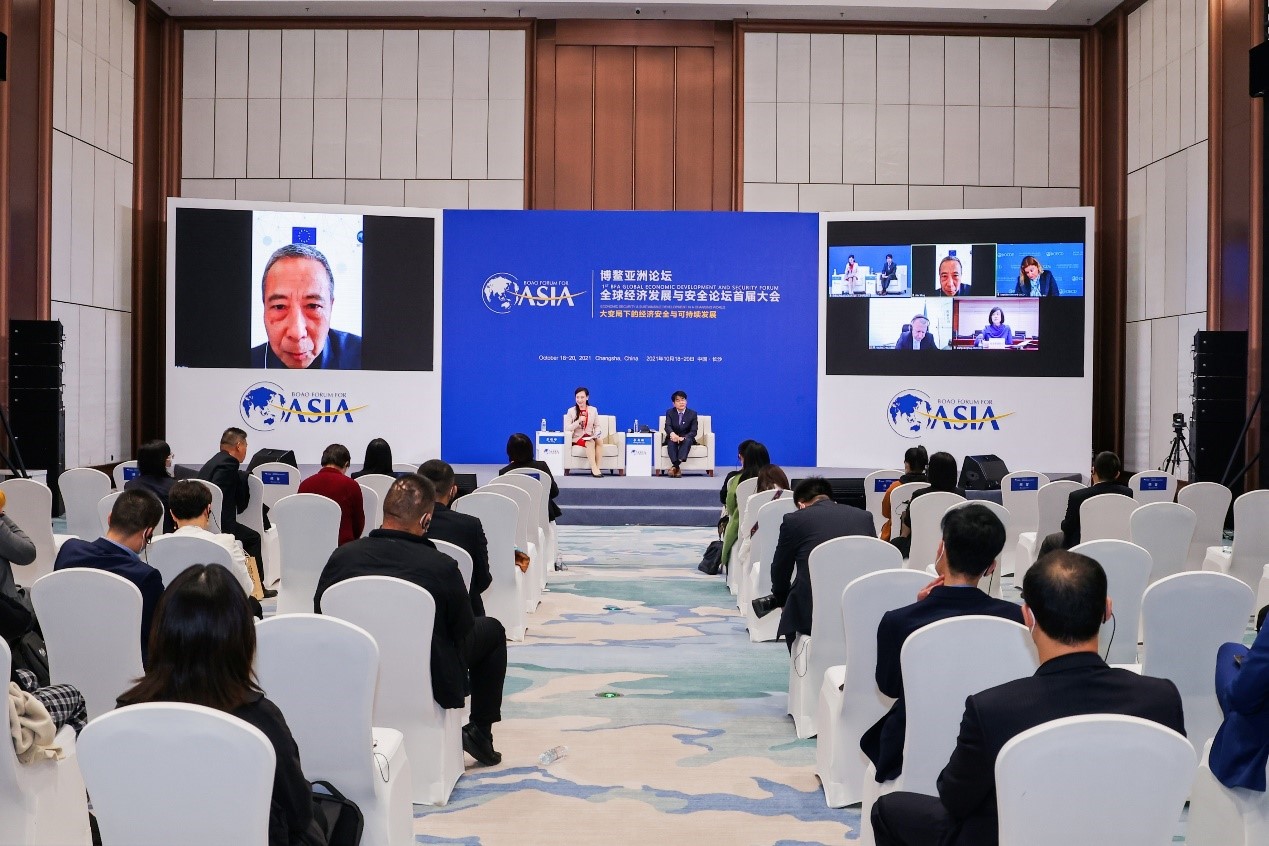
Alex Wang, Director for Supplier Management & Innovation and CEO, Orange Sourcing Consulting, Orange Group, participates in the online discussion.
Recovering from the pandemic, comprehensive and consistent solutions are much needed to enhance the resilience of global supply chains and value chains. This is inseparable from the joint efforts of all stakeholders around the world, and it also requires all parties to reach a consensus on the direction of actions. RBC can also help avoid negative impacts on people, society, and the planet of the response measures that governments and enterprises have been carrying out. Therefore, governments, international organizations, enterprises, and all stakeholders should regard themselves as important links in concerted actions by all parties, so that they can make global supply chains more resilient, and deliver a more sustainable global economic recovery.







 Back
to top
Back
to top